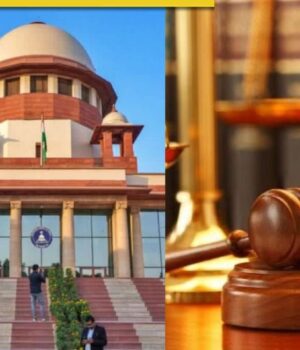Source : DNA INDIA NEWS
The Supreme Court used Article 142 to avoid sentencing a man convicted under POCSO, citing the victim’s emotional bond and the failure of the legal system.
SC drops sentence in POCSO case, read more
The Supreme Court of India recently used its special powers under Article 142 of the Constitution to not give any punishment to a man who was found guilty of having a sexual relationship with a minor. The court explained that this decision was based on the victim’s emotional and current situation. Although the court had earlier overturned his acquittal, it chose not to impose any sentence this time.
The case goes back to 2018 when a 14-year-old girl from West Bengal went missing. Later, it was discovered that she had married a 25-year-old man. Her family filed a case against him, and a local court convicted the man under the POCSO Act (Protection of Children from Sexual Offences Act), sentencing him to 20 years in jail. In 2023, the Calcutta High Court surprisingly acquitted the man, making controversial remarks about adolescent sexuality. These remarks sparked outrage and led the Supreme Court to step in.
In August 2024, the Supreme Court cancelled the High Court’s decision and reinstated the man’s conviction. However, it paused the punishment and asked the West Bengal government to form an expert panel. This panel included psychologists and child welfare experts, who were asked to study the woman’s current emotional state and family situation.
The panel reported that the woman, now an adult, was emotionally attached to the man, who is now her husband. They live together with their child. The report added that the woman had faced more pain and hardship from the legal process than the incident itself. Her family had abandoned her, and she was judged by society. She had to constantly fight to protect the man from punishment.
The Supreme Court said, “This is an eye-opener for everyone. The system failed the girl when she needed support the most.” Justice Abhay Oka added that the victim did not see the act as a serious crime and had grown emotionally close to the man.
Considering all these factors, the court used Article 142 to ensure “complete justice.” It said that punishing the man now would not help the victim or their family and could break their household.
This case highlights the gaps in the legal system when it comes to understanding emotional and social complexities, especially in cases involving young girls. It also shows how courts sometimes need to take a more compassionate and realistic approach to deliver justice.
SOURCE : DNA NEW




